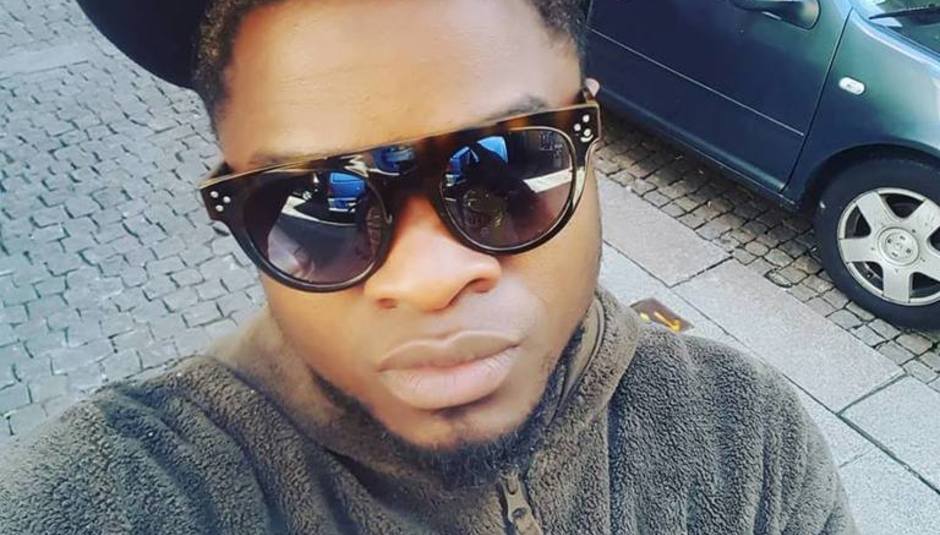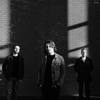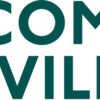Diron Animal might just be one of the most uniquely innovative artists on the planet right now. Born and raised in Angola, although now based in Portugal, Diron initially cut his musical teeth with experimental outfit Throes + The Shrine, putting out three albums between 2012 and 2016.
At the same time, he also spent the past four years constructing melodies, rhythms, and vocal ideas of his own resulting in 2017's debut Alone. Consisting of ten songs that encompass a range of genres from rock and soul to traditional Angolan sounds (kuduro) and folk, it's an exciting melting pot of styles that marks out Diron Animal as possibly the most adventurous talent on the planet right now.
DiS: Having been a focal member of Throes & The Shine since their inception, what made you decide to embark on a solo project?
Diron Animal: I started this trip, or project, on my own because I have personal and professional goals that would be very hard to achieve, or would take too much time, with Throes + The Shine.
Do you prefer working on your own or part of a group? How was the dynamic within Throes + The Shine? Did you feel your personal creativity was being stifled?
My goal is to work alone. I feel more at ease and work better on my own than in a group. I made an effort with Throes & The Shine, which was not easy, but in the end, we all tried to attain the same goal. Sometimes we were satisfied or sometimes we were not, but the decision was made on the basis of a vote. For example, if most people were happy, then that was how it went. And, yes, I often felt that I could not express my talent and my creativity. I was kind of choking, which was not intentional, but maybe it had a negative effect on the band.
Are you still working with Throes & The Shine? Is Diron Animal your main project going forwards?
Diron Animal is my main project and is the one that I'm dedicating myself to. I no longer have time for Throes + The Shine.
Was it difficult to adapt to the expectations of a single artist compared to the shared responsibilities of being in a band?
I have more options working alone. For example, I can use any style, any artist, any person as a reference point for my musical inspirations. In the group, there were limitations: things and artists that could not be used for inspirations. Working alone I feel that I have more freedom to express myself in both recorded music and live performances. That's why adapting was an easy thing. I started to work more, of course, but it's better for me because I have a more authentic product.
Tell me about your background? You were born and raised in Angola before moving to Portugal to study? How did you find the difference in cultures to begin with?
My past is not exactly brilliant, but there was a moment from my past that was a life lesson that's made me the man I am today. I come from a very humble family. I was born in the Ganda de Luanda, Cazenga - one of the largest, most populous and poorest parts of the country. When I was a child, I did not have toys but we had a lot of time to play. We had to invent things to have fun, so we made our own toys out of sand and mud. This mix smelt rotten and its texture was similar to plasticine. We also made tin cars with old chicasco cans from chicasal and cans of butter. Over time we learned to make our shoes with used car tires because we had no shoes. All these things made it possible for me to become a creative person. I adapted to living in Portugal easily; I already had relatives here who'd lived here for a few years. They taught me some things. Also, I'm an easy and communicative person, so I quickly got myself out and started meeting people. At first, it seemed to me that the Portuguese were speaking very fast, but then it got easier because the core language is the same.
Do you see Portugal - or Europe in general - as being your adopted homeland now or is it your intention to return to Angola one day?
I like it here in Europe. I have lived in Portugal for almost 11 years now and have no great plans to return to Angola.
What's the music scene like in Angola? Are there any other artists you would recommend that we are probably not aware of in the UK?
Angola's music scene is very vibrant. Most people are currently into Kuduro do Ghetto. In my opinion, it's great music at the rhythm level, but it loses the melodic part. Others are into Kizomba. What I find most interesting is Semba, Kilapanga, Rebita and Kwassa, but at the moment there are few artists involved in these genres. I can recommend Africa Negra's album Carambola. You can listen to it on Spotify. It is a great influence on me and especially on my album Alone. This band joins members of São Tomé, Príncipe and Angola.
Alone came out at the end of last year. When did you first start writing the songs for the record? Were they always intended to be for yourself or were they intended for Throes & The Shine? Were there any songs written around that time which did not make Alone that might be revisited in future?
On Alone there is only one song I wrote for The Shine. I wrote and also recorded it as an instrumental. Later we ended up recording the music again but we kept the lyrics. At the time of the recording, in my absence, the lyrics were changed. However, we were going to use the lyrics on my future album that was almost ready. I am the author and I'm very fond of the lyrics. All other songs were written by me for Alone. There was one song I didn't put on the album. I thought at the time it was not as good as the others, but now I've worked more on it, it's very beautiful and super funny. This year I'm going to release some tracks to accompany Alone. I also have plans for next year to release my next album, which is almost ready. 20 songs that will not stop you from moving the body even sitting down. I'm anxious to show people what I've been working on.
Alone received a wealth of critical acclaim from publications all around the world. Did you expect such a response? Do you think the music press has so much influence now as it did 5-10 years ago?
I expected some things and I did not expect other things. I was very happy with the feedback and I hope there is more to come because there are still a lot of people to introduce to Alone. People have to listen to this album and, if possible, buy it. I don't know much about the music press, but I know it has an important critical role in promoting music. A few years ago there were media platforms that had more influence. The Internet has changed all that. Basically, it depends on the music media channels you use, but we shouldn't neglect any media because each has its merits.
You sing in Kimbundu as well as Portuguese and English. Was it difficult marrying the three languages into song? Do you see singing in Angolan as being essential in terms of retaining some kind of nationalistic or individualistic identity within your music?
It was easy to sing in three different languages. I had already sung in Portuguese, Kimbundu, so I had previous experience. It was necessary to write in English and sing in English. It was something that happened naturally. I'm also proud of my country. I say more when I sing in my native tongue. It makes my music more original and personal.
You collaborated with Spook Mathambo on 'N Crazy'. How did that come about and are there any other collaborations planned for the future?
The collaboration with Spook Mathambo happened because we had met before in Lisbon. He saw our concert. He liked my energy and my stage presence. He invited me to join him (at the time with another band), but it didn't work out at the time. A few years later, when my album was ready, I thought it had a track that would fit Spook. I sent it to him inviting collaboration. He listened and asked for two more tracks from the album. One of the two tracks I sent happened to be 'N Crazy'. He chose 'N Crazy'. It was very professional and very fast. He is very good at what he does. My next album is going to have more than 10 songs and I do not want it to be just me singing, I have already produced all the instruments. Some tracks have guitars, bass and saxophone played by other musicians but the production is all mine. Now I want to give it a different touch, so I intend to invite other people and this process is already underway.
A lot of your songs refer to the social and political situation back in Angola. Do you see your music as a way of informing others and raising awareness of a situation many people outside of Angola might not have that much knowledge about?
One of the Alone tracks, 'Oxala Kuanbote', is about working hard and striving to achieve our goals without harming people in the process. We can live in peace and harmony, and work to accomplish what we want. Tonilson was my follower. He was only 16 years old. He was assassinated in Angola. We don't know how. He passed more than a year ago and his body's not been found. Some say he was burnt alive. There are also songs like 'Kema'. It's a song about global warming, especially in some African countries. I'm referring to what we're already feeling in some countries today: things like drought and forest fires. What happened in Portugal in October last year caused many European fatalities. We must protect water, but not in a sense of just water. We have to pay attention and be mindful of our environment in general. As for the 'Ghetto Ghetto' song, what I'm saying is you can leave your country but you should never forget your origins because they are fundamental elements that define you as a person. We must always be open to learning new things, embracing new cultures and new customs, but we must not forget where we come from.
You are due to play a number of festivals this summer. Which ones are you most looking forward to?
I'm playing several festivals this year and I'm anxious to do it because what I like the most is playing live. I like to sing, to entertain people, to dance with people. I often say that to awaken the animal that is in me I also help people to awaken the animal that's hidden in each one of them. I'm getting ready for my shows. At the moment the festivals I know of and I'm eager to play are Paleo in Nyon, Switzerland and the Chorus in Paris, France.
Will there be a UK tour soon? What is your favourite part of being on the road?
My team is working on this and I hope it will happen soon. Playing live is my favourite part of the tour because that's when I have most fun.
Your whole ethos is very DIY from writing, playing and producing your music to designing your clothes and stage productions for the live show. Is this something you'll continue to do going forward? What influences your outfits and stage show?
Yes, I'm the one who designs my clothes and a lot of the time I end up doing it all myself. What influences my shows is the public. When I'm getting ready for a show I think of the audience. Everything I do is for the public. I enjoy it more when I'm natural and express how I feel. I often prepare something to say but end up saying something different because looking at people my feeling is different and different is wonderful. My shows are influenced by the public and designed for the public, and I usually dance without stopping.
Are there any plans to follow up to Alone and if so, when is the projected release date?
This year we are going to release another single with a video for Alone. It will be released in the next 2 months. I'm also designing something to release to accompany Alone.
What are your plans for the rest of 2018?
First, to play lots of shows to promote my album. Second, to release at least 4 singles.
What advice would you give to a new musician or band just starting out?
First, think what your goals are. Have fun. Do what you want, what makes you happy and amuses you. If music is your job, then you have to think of it as a business: if we're heading into winter, we're not going to be selling summer clothes. In short, you should pay attention to your followers and your musical originality.
For more information on Diron Animal, please visit his official website and Bandcamp, Twitter and Facebook pages.






















